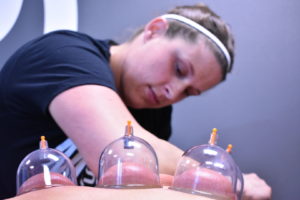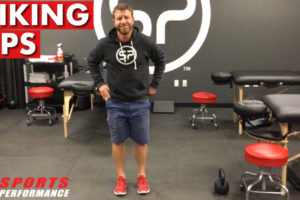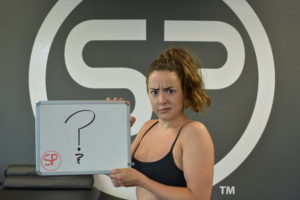
Shoulder impingement syndrome is a common name for pain in the front of the shoulder when reaching overhead. It usually begins gradually and can get progressively worse over time if left untreated. It is not usually related to a traumatic experience. Shoulder impingement syndrome is not usually associated with numbness or tingling in your arm or hand.
Think of this as a scab…if you keep picking at it, it’ll keep bleeding and not fully heal.
The hallmark signs of shoulder impingement syndrome are:
- Pain in the front of the shoulder with lifting your arm overhead
- Pain in the front of the shoulder reaching behind your back (ie. getting a wallet out of your back pocket or putting on a bra)
- If gone on long enough, associated weakness on the painful side
Shoulder impingement syndrome is not usually associated with numbness or tingling in your arm or hand.
What can you do to help your shoulder pain get better? One, modify things that hurt. Not forever, but right now, and over time re-introduce those things gradually. I like to think of this as a scab, if I keep picking at it, it’ll keep bleeding and not fully heal.
- Modify lifts so that you can still get your workout on but not aggravate the painful shoulder
- Use dumbbells over a barbell
- Keep a neutral shoulder with exercises
- Landmine press vs overhead press
- Stretching
- Sleeper stretch
- Door stretch
- ROM
- Weighted eccentrics
- Thoracic extension mobility on foam roller
- Strength
- Push ups with a plus
- Wall clocks
- T, W
- Standing snow angels
- Standing scaption to start of discomfort
Modify lifts so you can still workout but not aggravate the painful shoulder.
Shoulder impingement syndrome is terrible and can really affect the way you enjoy working out and even your day to day function. There are a variety of ways that you can help to control your pain, as stated above. If this impingement syndrome and the associated pain continues to bother you, a great rehab professional can help you get back to your best!
As always, I hope this helps! If you have any questions or would like to read about certain topics, send us an email at TeamSP@SportsPerformancePT.com.
-Dr. Nick Schroeder, PT, DPT, CSCS

Sports Physical Therapist








